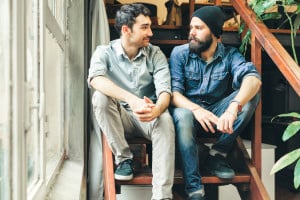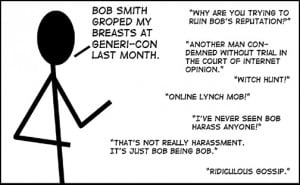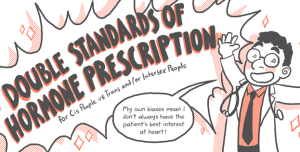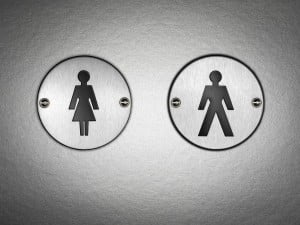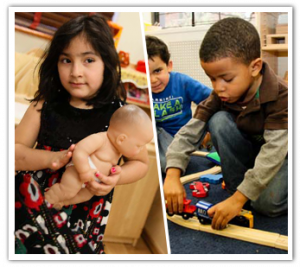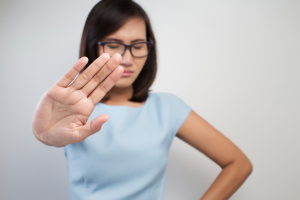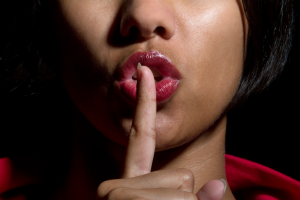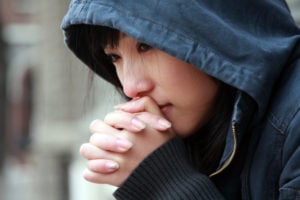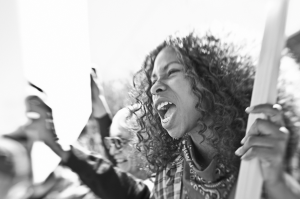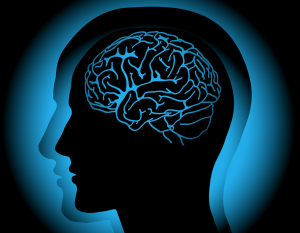Let’s get this out of the way right now: I am a white cisgender gay woman, and I love gay men. I don’t claim to know what it’s like to be a gay man, nor do I intend to speak for all queer people.
My experience as a gay woman was largely shaped by gay men, and I want to pay it forward.
Now, when I came out as a lesbian, a family member questioned whether or not it was a “Phase,” which seems like a stock response at this point.
However, he supported his hypothesis by saying that only gay men can truly know that they’re gay, because that means that they’ve been penetrated by a penis and liked it. His words, not mine.
Basically, his logic was that a woman can only know her orientation after she has had sex with a man.
Did I mention that this entire conversation took place at a gay bar? It’s called The Brass Rail. You can guess their target demographic.
I couldn’t put it into words back then, but now I understand how patriarchy played a large part in that family member’s fallacy (and phallus-y)-riddled logic. He was questioning the legitimacy of my identity not because it was a gay identity, but because I was claiming it as a young woman.
I used to wish I were a gay guy all the time, because I thought that gay men have it easier than gay women.
Now that I’m older and not currently crying outside of a gay bar surrounded by metal penises, I think my former envy of gay men stems from the fact that gay men are treated with male privilege that I will never have as a woman.
Even though white cis gay men are marginalized in society due to being gay, they still have male privilege, white privilege, and cis privilege.
This doesn’t mean that white cis men are born evil or that they don’t work hard to succeed. Societal privilege just means that people born with certain traits are given more access to opportunities to work hard and then succeed.
White cisgender gay men have access to leadership positions, higher pay than women and people of color, more media representation than any other group of LGBTQIA+ people, and the kind of implicit trust from strangers that societal privilege can afford.
If you’re a white, cisgender gay man, you have a vast amount of access, visibility, and power, even though you are a queer person in a homophobic society.
So here are three ways gay men can use their societal power to benefit less-privileged members of the LGBTQIA+ community:
1. Examine Your Biases
Whether you’d like to admit it or not, you have biases. We all do.
When I was younger, I learned to associate “Butch” with “Scary,” because someone in my life had one bad experience with one butch lesbian and told me about it.
Sometimes, one story is all it takes to create a bias if you’re impressionable and have no other knowledge about a group of people.
My “Butch Lesbians are Scary” bias affected my relationship to my own sexuality, as well as my judgments of others.
I was filled with fear and dread that I might be a lesbian, because I thought all lesbians had to be butch (and therefore scary). I was afraid of an entire group of people for virtually no reason. I was scared of female masculinity, because I was misinformed, uneducated, and insecure.
And when I came out of the closet, I had to address my bias head-on. I realized that my mental picture of a butch lesbian was largely based on stereotypes, and stereotypes are not valid points of reference.
I stopped myself from making cheap jokes or judgmental faces when I heard the words “Butch” or “Dyke” in a conversational context. I also learned to recognize others’ cheap jokes and judgmental faces in these moments.
I consciously reminded myself that butch lesbians had at least one thing in common with me and that I’m probably the least scary person alive. So how scary could butches really be? I took a mental note every time I came across a butch lesbian, whether it was in the media or out in public.
I opened up my mind and my perception to include butch women and found that they weren’t all the same and that they didn’t scare me. Long story short: You need to study your own behavior and where it may come from.
Your biases could come from personal experiences, secondhand stories, or media stereotypes that impacted the way you see the world. Once you confront your biases and dissect their origins, you can redirect yourself through exposure. This can mean taking in new media, revisiting old favorites with newfound perspective, and eventually meeting actual real-life people.
Will you turn perfectly free of prejudice overnight? Of course not.
But over time, your worldview will expand. That way, you can…
2. Expand Your Circles
Unpopular opinion: Most “Gay” spaces feel like he-man-woman-hater-clubs.
Furthermore, these dude-centric clubhouses often cater to white, cisgender dudes who have money and looks that match conventional beauty standards. Just look at the promotional materials and drink prices at any gay bar.
This closed-minded approach also exists online. I can’t tell you how often I’ve heard of gay men on dating sites who make it a point to say “No Fats, No Femmes, No Asians” on their profiles.
The fact that this behavior is normalized in gay male online spaces is proof that fatphobia, misogyny, and racism are alive and well among gay cis white men.
Beyond the blatant and unchecked discrimination in online spaces, the “No Fats, No Femmes, No Asians” phenomenon keeps white cis gay men from meeting anyone other than, well, hite cis gay men (and/or the occasional token racial minority, who – let’s be real here – may be fetishized to a degree).
Before you hit me with variations of “Not All White Cis Gay Men,” hear me out:
White people in general need to work on including and listening to people of color. Cisgender men in general need to work on including and listening to people of other genders.
Straight men who are white and cis probably need the advice I’m giving to their gay counterparts, but there is one major difference: By virtue of being gay, white cisgender gay men are part of a community that has been persecuted, legally denied protections, victimized by hate violence, and still needs support.
So how do you bring diversity into your life? Invite new people in.
Start respectful but meaningful conversations with people whose lives are different than your own. You can learn a lot about a person just by asking about how they grew up.
Don’t approach these conversations like you’re a journalism student doing research – just try to make a new connection. Ask the same types of questions you’d like someone else to ask when they’re getting to know you.
Bring new people into your social life. Remember when you were starting respectful but meaningful conversations with someone different from yourself? Invite that person out!
Whether you prefer your neighborhood gay bar, a party you’re hosting with your best friend, or your living room for game night, you can bring new people into your spaces.
If you’re in a position where you have to look for employees, collaborators, committee members, or teammates, your search should explicitly include people of diverse identities.
Ask your activist friends to spread the word. Use online job boards aiming specifically towards queer people, people of color, trans people, and/or intersectional activists.
State specifically that you want submissions from women, people of color, and/or gender and sexual minorities. And keep to your word when the submissions start rolling in!
It’s rude to invite yourself to trans spaces, female-centered spaces, and/or safe spaces for people of color, but you can and should usher in new people to spaces where you have access and are in the position to welcome others.
3. Use Your Voice
As I mentioned before, white cis gay men have the most societal privilege in the alphabet soup of gender and sexual minorities.
One way you can acknowledge this privilege is to advocate for marginalized people, including (but not limited to) trans people, people of color, bisexual people, and, last but not least, women (this is a feminist site, after all).
Once you’re finished reading this piece, head over to Ye Olde Google and learn about systemic racism, legal protections for transgender people, sexual violence in the military, the racist nature of the War on Drugs, the US Prison Industrial Complex, and/or the rights and protections we should be granting sex workers (remember the RentBoy hacks?)
Will these causes directly affect you personally? Probably not. But they all affect different groups of LGBTQIA+ people – your community.
Remember all the straight progressives who supported marriage equality, arguably the most mainstream “Gay Issue” of our lifetime? Marriage equality didn’t directly affect straight couples, but they still stood up for queer people’s right to be treated as equal (in that respect, anyway).
If straight people can be allies to LGB people, then white cis gay men should be allies to LBTQIA+ people.
You can do this by calling in your friend if they say something problematic. It can be as simple as disproving a stereotype or briefly explaining which terms are considered polite versus offensive.
Being an adorable gay guy doesn’t give anyone a free pass for being offensive with pizazz, and if someone says something harmful, you’re free and encouraged to speak up.
The media makes us think that activism is all about picket signs and yelling, but you can be an activist just by starting conversations and educating others.
You can also give your time, money, or other donations to shelters, food banks, abortion clinics, and other organizations who provide resources for marginalized people.
If you’re a white cis gay guy who stands up for marginalized LGBTQIA+ people, it’s highly likely that others will take in what you have to say and follow your example.
Unfortunately, we live in a society that prioritizes what men have to say, which is why it’s so important that white cis gay men act as allies to causes that may not apply directly to the Neil Patrick Harris-es of the community.
***
As I mentioned at the outset of this piece, my journey as a gay woman was highly impacted by gay men. My education about social justice movements, my biases, and even my social affectations were all white-cis-gay-man-centric from my adolescence until fairly recently.
In short, I was that teenage girl surrounded by (mostly) white gay twenty-somethings. We all worshipped at the altar of Barbra Streisand while sipping on Cosmopolitans and gave lively (stoned) running commentary on The Tony Awards (which are all activities I would still endorse today).
But now that I’m the adult white gay twenty-something with the power to influence young queer people, I know things now, many valuable things that I hadn’t known before.
I now know the harmful effects of the cultural appropriation my friends and I were complicit in by taking on affectations of African-American women. You know you’ve heard a white gay guy say he has “a sassy black woman” inside of him at least once. #NotCute
I now know that the gay man who told me that gay men in drag were the leaders of the Stonewall Riots was incorrect. Trans women led the movement, and I now know that there is a difference between drag queens and trans women.
I now know that gay men can perpetuate misogyny just as much as straight men can
And now that I have these ideas in my head, I want to send them out to the people who first accepted me, guided me, and showed me that being gay is a beautiful thing: gay men.
Just as you allowed me into your Tony Award parties and piano bars, I want to invite you into the world of intersectional feminism.
All you have to do is figure out your biases, open up to new people, educate yourself, and speak up for people whose voices aren’t as amplified as yours. I know you can do that.
I’d quote “Do You Hear the People Sing?” from Les Miserables, but that would be too on-the-nose.
[do_widget id=’text-101′]
Maddie McClouskey is a Contributing Writer for Everyday Feminism. She’s a twenty-something lesbian in New York City and currently writes weekly dating advice pieces for the LGBTQ event app and website SheSeekOnline and was a regular contributor to the sexuality and feminism site ToughxCookies. When she’s not writing articles about gayness, she’s performing stand-up comedy, singing show tunes to her girlfriend and dog against their will, or making up jokes for Twitter @SoundofMaddie. Read her articles here.
Search our 3000+ articles!
Read our articles about:
Our online racial justice training
Used by hundreds of universities, non-profits, and businesses.
Click to learn more
Most Read Articles
- « Previous
- 1
- …
- 30
- 31
- 32


